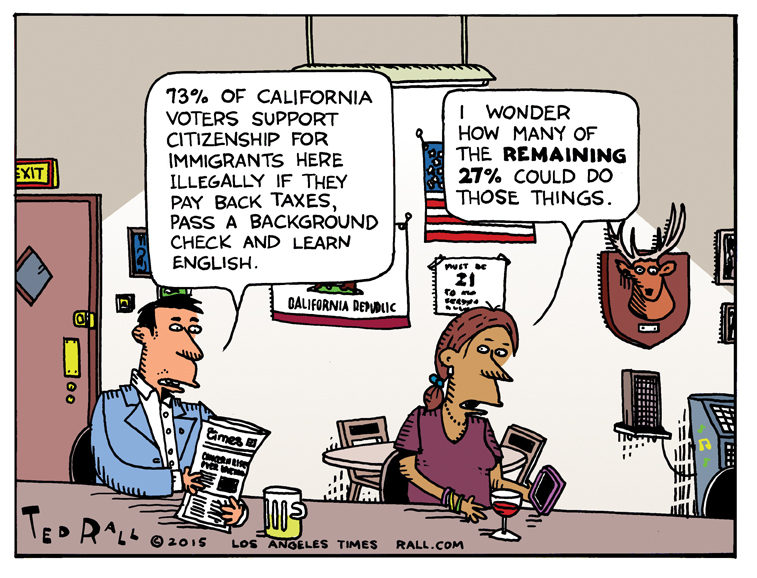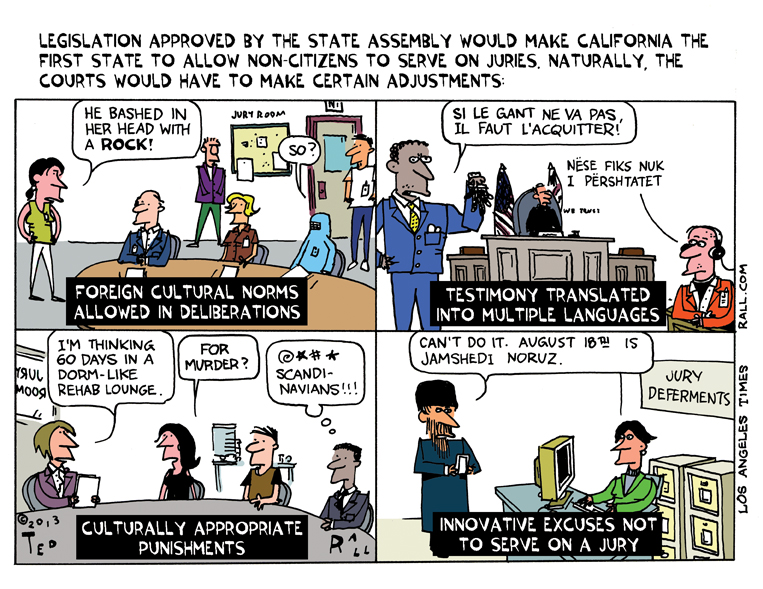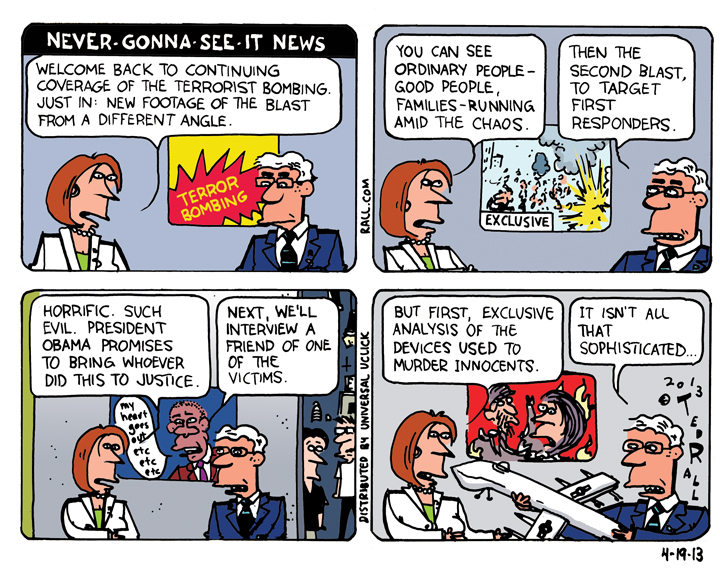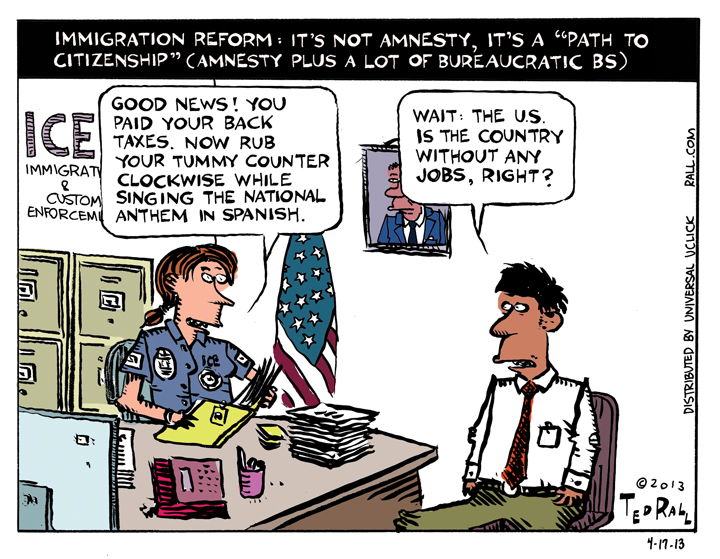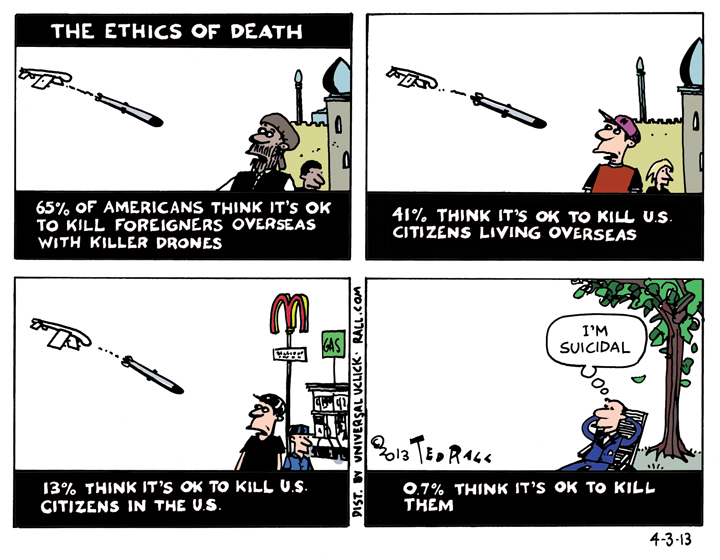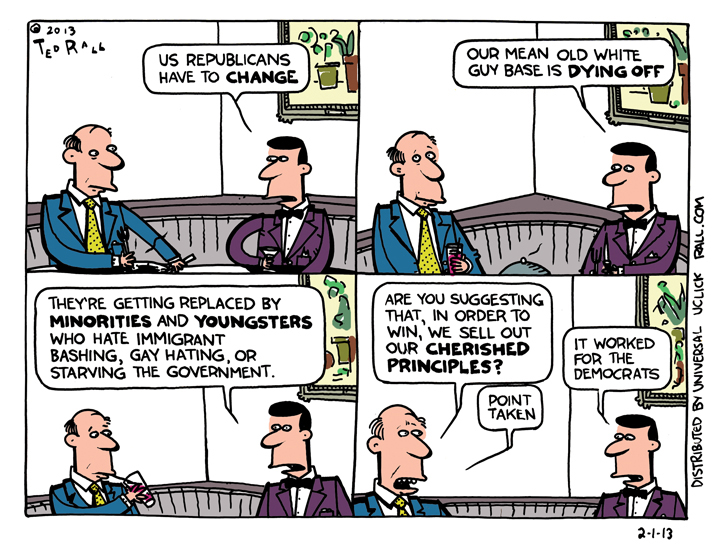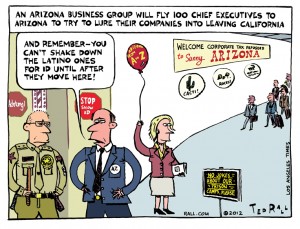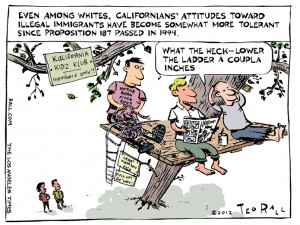Originally published by The Los Angeles Times:
To listen to talk radio and cable television, which are dominated by conservatives, the national and state debates over immigration give the impression that most legal residents of the state of California oppose immigrant workers here illegally and might even be favorably disposed to Mitt Romney’s suggestion that they “self-deport.”
It’s not a crazy assumption. After all, state voters in 1994 overwhelmingly approved Proposition 187 – which prohibited people here illegally from using such public services as schools and healthcare.
As it turns out, however, the voices of anti-immigration forces are disproportionately louder than their actual numbers.
A new poll of likely California voters shows that a whopping 73% support granting citizenship to immigrants here illegally if they agreed to pay back taxes, pass a background check and learn the English language.
Support for legalizing the status of people currently living in the shadows is not only majoritarian, but broad. “Even 61% of Republicans favored it, although nationally GOP politicians have been the biggest obstacle to immigration reform. All ethnic and age groups strongly supported such citizenship. So did every California region, whether blue or red,” writes Los Angeles Times columnist George Skelton.
At this point, it’s clear that nativists have lost the argument. Although I am and have always been sympathetic to the concept that a nation-state isn’t truly sovereign if its borders remain unguarded, the reality is that there are at least 10 million people in the United States illegally. There are about 2.6 million in California, accounting for about 10% of the workforce. ] It’s also ironic that we demand that people who come to the United States learn English, yet 14% of U.S. adults can’t read. Should we throw them out? –
They’re already here. They’re working. They’re our friends, our neighbors, our colleagues, our loves and our spouses. Fortunately, there isn’t the political will to deport them. Since these workers are not going anywhere, it seems ridiculous to condemn them to being terrified every time the cops pull them over for speeding.
Seems to me that immigration opponents ought to focus not on the people who are here and who should be grandfathered in, but on preventing future illegal immigration by lobbying Congress to build an impermeable border between the United States and Mexico.
Of course, they’re not likely to get very far, since both major parties have a vested interest in the status quo. Immigrants here illegally represent future Democratic voters and are easily exploited by the business interests near and dear to the Republican Party. The GOP must draw votes from Latinos if it’s to remain viable in a nation in which the demographics are becoming less white.
Today’s cartoon is partly a jab at the anti-immigration types who pretend to be motivated by economic or patriotic motives but are really just racist. It is also a reference to the fact that many native-born Americans would have trouble jumping through the hoops required of those seeking to become naturalized citizens.
A 2012 study found that one out of three native-born American citizens would fail the civics section of the test administered to those applying for U.S. citizenship. Among the highlights: 85% couldn’t identify “the rule of law” – well, maybe that’s because they’ve been watching one president after another ignore it – and that 75% didn’t know what the judiciary does. Also, 62% couldn’t identify the governor of their state.
As for the requirements that the 73% say they would impose on people here illegally, I wonder how many people with legal status could survive an IRS audit that required them to pay all the taxes on income they’ve failed to declare since they turned 18 … or would be able to cough up the dough.
It’s also ironic that we demand that people who come to the United States learn English, yet 14% of U.S. adults can’t read. Should we throw them out?
Here’s an idea: Let’s deport everyone who can’t pass the basic requirements to become an American citizen, whether or not they were born here.
The country will empty out in no time.

